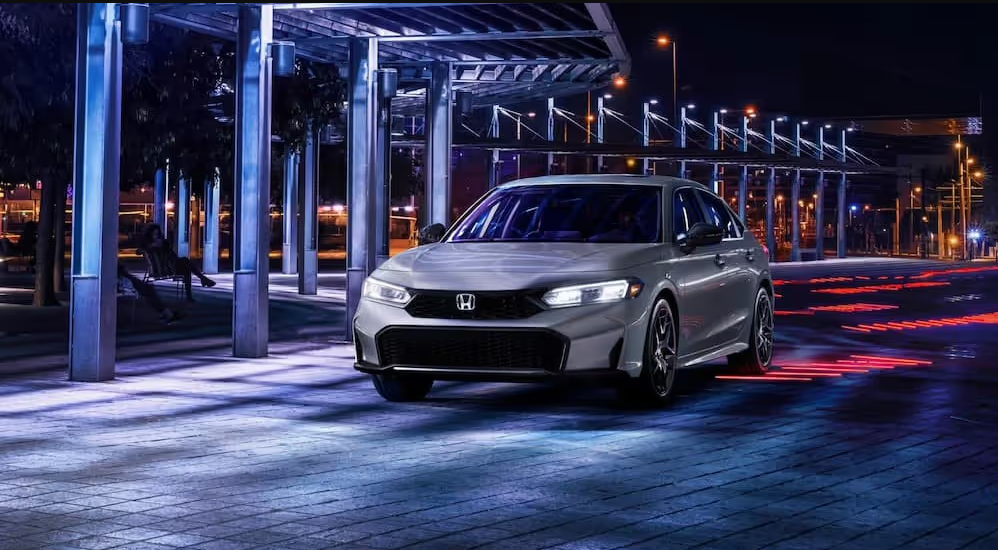Electric vs. Gasoline Cars: Which One Should You Choose?
Electric vs. Gasoline Cars: Which One Should You Choose?
As technology advances and environmental concerns grow, more people are rethinking the type of car they should buy. The debate between electric cars (EVs) and gasoline-powered vehicles has become one of the biggest topics in the automotive world. Both offer unique advantages and come with their own set of challenges.
So, how do you decide which one is right for you? In this article, we’ll compare electric and gasoline cars in key areas such as cost, performance, maintenance, environmental impact, and practicality to help you make an informed decision.
1. Upfront Cost: What’s Cheaper to Buy?
Gasoline Cars:
Traditional gas-powered cars generally come with a lower sticker price. You’ll find more options at different price points, especially in the used car market. Budget-conscious buyers often favor gasoline cars for this reason.
Electric Cars:
EVs tend to have a higher upfront cost. However, this is changing as more manufacturers release affordable electric models. Governments in many countries also offer incentives, tax credits, or rebates that reduce the initial purchase price.
Verdict:
Gasoline cars win in initial cost, but EVs may close the gap with incentives and long-term savings.
2. Fuel vs. Electricity: Which Saves More Money?
Gasoline Cars:
Fuel costs fluctuate depending on the region and global oil prices. Over time, fuel expenses add up, especially for long-distance drivers or those in traffic-heavy areas.
Electric Cars:
EVs are much cheaper to “fuel.” Charging an electric vehicle typically costs less than filling up a gas tank. If you have access to home charging and off-peak electricity rates, you could save significantly.
Example:
Charging an EV may cost around $10–$15 for a full charge, compared to $40–$80 to fill a gas tank, depending on the vehicle and fuel prices.
Verdict:
EVs are more economical in terms of energy cost per mile.
3. Maintenance and Repairs: Who Wins in the Long Run?
Gasoline Cars:
Gas-powered vehicles have internal combustion engines with hundreds of moving parts. They require regular oil changes, spark plugs, air filters, and exhaust system repairs over time.
Electric Cars:
EVs have fewer moving parts and no oil to change. There’s less wear and tear on brakes due to regenerative braking, and no need for emission checks. However, battery replacement can be expensive, although it’s rare within the first 8–10 years.
Verdict:
EVs have lower maintenance needs, which translates into cost savings and fewer trips to the mechanic.
4. Performance and Driving Experience
Gasoline Cars:
Gas vehicles offer reliable performance and are great for long-distance travel, towing, and high-speed driving. Sports cars with gasoline engines still dominate in raw horsepower and engine sound appeal.
Electric Cars:
Electric vehicles deliver instant torque, leading to faster acceleration and a smooth, quiet ride. Many EVs outperform traditional cars in 0–60 mph times. However, range anxiety (fear of running out of charge) can affect the driving experience.
Verdict:
EVs offer superior acceleration and a quieter ride, while gasoline cars may suit drivers who prefer traditional handling and extended travel.
5. Environmental Impact
Gasoline Cars:
Gas-powered vehicles emit carbon dioxide (CO2), nitrogen oxides, and other pollutants that contribute to climate change and poor air quality. They rely on fossil fuels, which are finite and environmentally damaging to extract.
Electric Cars:
EVs produce zero tailpipe emissions. When charged with renewable energy, they offer a much cleaner alternative. However, battery production has its own environmental impact, including mining of lithium and cobalt.
Verdict:
EVs are significantly cleaner over their lifetime, especially when powered by renewable energy sources.
6. Range and Charging Infrastructure
Gasoline Cars:
Gas vehicles have the advantage of long range—typically 300–500 miles per tank—and fast refueling at any gas station, which are widely available.
Electric Cars:
Range depends on the battery size. Most EVs now offer between 200–350 miles on a full charge. Charging infrastructure is growing, but charging takes longer—anywhere from 30 minutes at a fast-charger to 8–12 hours on a home outlet.
Charging types:
- Level 1: Standard outlet, slow charging
- Level 2: 240V charger, faster for home use
- Level 3 (DC Fast Charging): Public stations, 80% charge in 30–45 minutes
Verdict:
Gasoline cars are more convenient for long trips, but EVs are catching up as charging networks expand.
7. Longevity and Resale Value
Gasoline Cars:
Most gas-powered vehicles can run for over 200,000 miles with proper care. They tend to depreciate quickly but are easier to resell, especially in regions with less EV infrastructure.
Electric Cars:
EVs can also last long, especially with minimal mechanical wear. Battery health is the key factor. Battery warranties often cover 8 years or 100,000 miles. Resale value is improving as EV demand grows.
Verdict:
Both car types can last long with care, but resale value for EVs depends on battery life and local demand.
8. Availability and Model Variety
Gasoline Cars:
The market is flooded with options—sedans, SUVs, trucks, sports cars—from budget to luxury models.
Electric Cars:
EV options are expanding, but the variety is still more limited. However, with companies like Tesla, Hyundai, Ford, and Volkswagen investing heavily, the selection is rapidly growing.
Verdict:
Gasoline cars still offer more variety, though EV choices are increasing each year.
9. Incentives and Tax Benefits
Gasoline Cars:
No major financial incentives exist for buying gas-powered vehicles. In some areas, there may be penalties or higher taxes for driving high-emission vehicles.
Electric Cars:
Many countries offer:
- Federal or local tax credits
- Rebates and cash discounts
- Free or discounted tolls and parking
- Access to carpool lanes
Verdict:
EVs offer more financial perks upfront and during ownership.
10. Future-Proofing Your Purchase
Gasoline Cars:
With governments worldwide moving toward carbon neutrality, some countries plan to ban sales of new gas-powered cars by 2035 or sooner. Fuel prices and emission regulations may continue to tighten.
Electric Cars:
EVs are aligned with future trends in green transportation. More automakers are shifting focus to electric-only lineups.
Verdict:
EVs are more future-ready, especially for eco-conscious and long-term buyers.
Final Verdict: Which Should You Choose?
Choose a Gasoline Car if:
- You drive long distances regularly and need quick refueling
- You’re on a tight budget and need a lower purchase price
- You live in an area with limited EV charging infrastructure
- You prefer a wider selection of models, especially trucks or performance cars
Choose an Electric Car if:
- You want to save on fuel and maintenance costs
- You drive mostly in cities or shorter commutes
- You’re environmentally conscious
- You want to benefit from tax credits and future-proof your vehicle
Conclusion
There’s no one-size-fits-all answer when it comes to choosing between an electric and a gasoline car. It depends on your driving habits, budget, location, and priorities. Both vehicle types have come a long way, and the gap between them continues to close.
As EV technology evolves and infrastructure improves, electric vehicles will likely become the dominant force in the automotive world. But for now, both options have a valid place on the road.
Before making a decision, take the time to evaluate your lifestyle and long-term goals. Whichever path you choose, staying informed will help you get the most value and satisfaction out of your vehicle.









